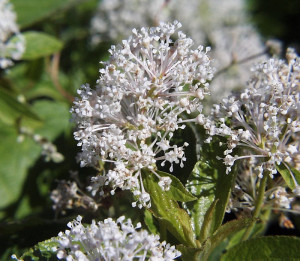Ceanothus Americanus is a plant. People use the root, root bark, and leaf to make medicine.
Contents
Uses
- Ceanothus Americanus is used for gonorrhea, syphilis, colds, cough, fever, chills, spasms, bleeding, and pelvic cysts.
Benefits
- Relieves Digestive Problems
Red root has been linked to many health benefits, but practitioners of homeopathic medicine have long believed that its medicinal properties best treat disorders of the digestive system and nearby organs, such as the liver and the spleen. It is also believed to promote evacuation of the bowels.
Homeopathy relies on the principle of “like cure like”. Abdominal pains, shortness of breath, painful menstrual discharge, urinary frequency, and the like are all symptoms related to the digestive system. Homeopathic physicians have documented the efficacy of red root in treating these medical signs.
- Alleviates Respiratory Illnesses
In addition to its homeopathic uses, red root is extensively utilized in folk medicine practices of Native Americans and European colonists, especially to alleviate whooping cough. The former had been using the plant as an herbal medication long before the latter even learned of its agreeable taste.
Through the centuries, herbalists have noticed that red root works as a mucolytic agent when consumed as tea. Compared to other known expectorants back in the day, red root lowers the viscosity of mucus and promotes the expulsion of phlegm from the respiratory tract.
- Shows Antibacterial Properties
The medicinal properties of red root are attributed to its phytochemical content. This plant species contains organic compounds that are purported to be antibacterial in nature, such as lignins, tannins, and the unique compound ceanathine.
These antibacterial phytochemicals have been observed to help treat sexually transmitted diseases, notably syphilis and gonorrhea. Also, it appears to lessen frequency of canker sores and prevent formation of tooth decay when used as a mouth wash.
Cautions
Interactions
- We currently have no information for Ceanothus Americanus tea Interactions
Other names
Céanothe d’Amérique, Ceanothus americanus, Ceanothus intermedius, Jersey Tea, Lirios de California, Mountain-Sweet, Red Root, Redroot, Té de Nueva Jersey, Thé du New Jersey, Walpole Tea, Wild Snowball
References
Source:
Wikipedia, https://en.wikipedia.org/wiki/Ceanothus_americanus

